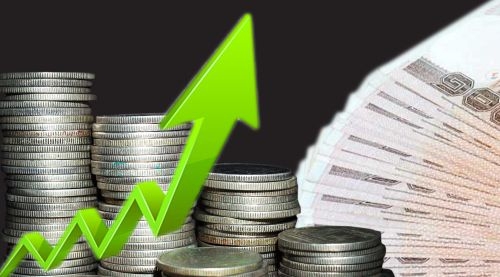
The baht is expected to strengthen further as the escalation of the China-US trade war hastens foreign capital inflows into Thailand's "safe haven" bond market while the US Federal Reserves may again cut interest rates .
The ongoing tit-for-tat superpower trade conflict has intensified with China announcing on August 23 a set of preparatory tariffs of between 5 to 10 per cent on $75 billion worth of US goods. US President Donald Trump responded by raising existing tariffs on $300 billion worth of Chinese goods by 15 per cent, effective December 15.
Despite playing down the spike in trade tensions on Monday by saying that negotiations are now back on the table, the economic and financial impacts on the world economy have led to much uncertainties.
Thailand's economy, in particular, stands in the cross-fire of the trade tensions as the Kingdom produces electronic parts and agricultural products that are sent to China before being shipped to the US. Hence, the tariffs imposed between the two countries directly impact Thailand's own exports, causing the country's volume of shipments to decline in the first half of 2019.
"The deterioration of the US-China trade conflict has further depressed global trade and investment sentiments," said Chatree Rojana-Arpa, executive vice president for strategy and product development at KTB Securities (Thailand).
The worsening sentiment in the global economy will continue to have an adverse impact on Thailand, which is an export-reliant economy, said Mana Nimitvanich, first vice president of Krungthai Bank's Global Business Development and Strategy Group.
Furthermore, the baht is likely to get stronger in the upcoming months if the trade war continues as the US Federal Reserves will be more inclined to again lower interest rates , Chatree said.
This will cause the US dollar to depreciate against the Thai currency, he added.
Thailand, he said, is seen as a safe haven for global investors and if the trade war is prolonged, investors will continue to invest in Thailand's bond market, accelerating the baht's rise against the US dollar.
The Bank of Thailand has tried to limit hot money inflow into the Kingdom and even lowered the country's policy interest rate in an attempt to keep the baht strength under control. However, the impact of these measures are yet to be seen clearly, he claimed.
"The central bank is also worried that lowering interest rates further will worsen the problem of household debt as well as risking the imposition of US sanctions as Thailand has been included in the country's watch list of currency manipulators," said Mana.
Standard Chartered Bank (Thailand) has predicted that the baht will remain strong at Bt30.5 per US dollar in the rest of 2019.
"We are not sure if the baht strength can be kept under control by the central bank in the upcoming months as safe haven inflows continue into Thailand's bond market ," said Tim Leelahaphan, a StanChart's economist.
On Monday, Thailand's bond market saw a net inflows of Bt1.83 billion from foreign companies, according to the Thai Bond Market Association.
"The baht's strength will lead to negative impacts on Thailand's exports and tourism figures. As long as the trade war continues, this negative impact will stay," Chatree said.
Private exporters must work closely with the public sector in identifying export opportunities in China and the US as the two countries lose out on each other's markets, said Kriengkrai Thiennukul, vice chairman of the Federation of Thai Industries.
Exporters must increase their marketing efforts, particularly in smaller cities in China where market penetration from Thai firms is still relatively low, Charee said. This way, exporters can capitalise on the opportunities that arise from the trade war, he added.
Kriengkrai also called on the public sector to be more active in negotiating free trade agreements.
Furthermore, he said, the government must do more to promote locally produced products so that exporters can make more domestic sales amid global economic uncertainties.
"We have seen various measures launched by the Thai government recently to boost domestic consumption," Tim from StanChart said.
"However, there is yet a concrete plan to boost Thailand's exports, the biggest loser of the trade war, " he said.


